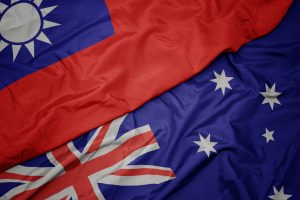Every few months former Australian Prime Minister Paul Keating gets an itch that he is out of the public spotlight. Given his previous position, which he held from 1991 to 1996, he knows that if he wishes to open his mouth the Australian media will pay him a lot of attention. The media also knows that Keating is a click-generating machine, with a fondness for controversy and a current unrestrained reflex to attack the foreign policy of the Labor Party he once led. This makes for great headlines.
For some time now Keating has had a bee in his bonnet about the balance of power within Asia, and in particular the status of Taiwan. As he wrote in the Australian Financial Review in April, Keating thinks that “Asia has always been a hierarchy of countries with China at its top.” He believes that China’s claim to this position and the power it implies is legitimate, regardless of the nature of the Chinese regime and the ideas and actions it seeks to advance. Submission to this power is therefore required by other Asian states, and Taiwan itself has no right to self-determination, or indeed safety.
Keating’s claim late last week on the Australia’s Broadcasting Corporation’s 7:30 program that Taiwan is “sitting on Chinese real estate” is ahistorical nonsense. Taiwan has never been part of the People’s Republic of China (PRC) – a state created in 1949. Sovereignty is about what you can and cannot control, not what any state wishes it could control. Sovereignty should also derive from the consent of the people. The Taiwanese have consistently made it clear they have no desire to become part of the PRC, something Keating deems irrelevant to his hierarchy of Asia.
Keating made the absurd analogy that seeking to deter PRC aggression against Taiwan was the equivalent of Beijing assisting Tasmania to secede from Australia.
There is, of course, a more accurate analogy in the case of North Korea and South Korea – with a line of control being drawn at the conclusion of a civil war, and two new societies developing in distinct ways (or not developing in North Korea’s case). In the history of humanity, this is quite common.
It is unlikely that Keating would claim that South Korea is sitting on “North Korean real estate,” solely because Pyongyang believes this to be so. The feelings of Kim Jong Un and the Workers’ Party would not be deemed to be superior to the welfare of the South Koreans. So why are the Chinese Communist Party’s (CCP) feelings and the welfare of the Taiwanese deemed different to him?
To understand Keating’s thinking it’s worth turning to George Orwell’s permanently relevant essay “Notes on Nationalism.” By “nationalism” Orwell does not necessarily mean nations as we understand them, but it is the term he uses to describe group thinking. In Orwell’s categorization, Keating is a “negative nationalist” – with his suspicion of the United States guiding how he sees every scenario.
Orwell writes that a nationalist thinks solely in terms of “competitive prestige,” and “sees history, especially contemporary history, as the endless rise and decline of great power units…” This thinking has no regard for states or people who aren’t considered great powers. At best their status is only understood in relation to great powers, and at worst, they are perceived to be nothing more than pawns in the competitive games between great powers. Keating is incapable of mentioning Taiwan’s status without reference to the United States.
In modern parlance, Taiwan, to Keating, is an NPC – a non-player character. It is, in his view, a state that has no legitimate right to its own agency. It sits idly there in the Western Pacific waiting to be interacted with by the “main characters” – on whom it is entirely dependent. Given that Keating once led a country that could also be considered an NPC in this line of thinking, he has an extraordinary lack of empathy for smaller states and their people.
In an interview on the ABC’s 7:30 program on Monday, former Speaker of the U.S. House of Representatives Nancy Pelosi referred to Keating’s remarks as “ridiculous” and “stupid.” Unable to resist responding, Keating issued a statement that proudly declared “I have remarked a number of times that so-called democratic choices by Taiwan are not central or interests vital to Australia…” His use of the cynical “so-called” revealed not only his contempt for the Taiwanese people, but also his indifference to democracy as a force for peace and stability (however imperfect), as well as fundamental to human flourishing.
Keating, like the CCP, may not see democracy as important to the vision of the Asian hierarchy that they both share, but maybe he should think again about how this impacts Australia’s vital interests. Keating’s prime ministership was notable for shifting Australia’s mindset toward embracing and integrating itself into the Asian region. Does this now mean that Australia also must submit itself to this CCP-led hierarchy? Or is this submission just for other Asian states?
I suspect most Australians would see democratic choice as a vital national interest. And would recognize that when other democracies fall, it weakens their own.

































